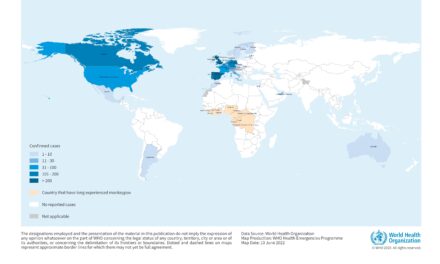Los Angeles, CA – February 5, 2025: A new study suggests that children who experience ischemic strokes are at an increased risk of developing anxiety, depression, and related physical symptoms, such as headaches and stomach aches. The study, presented at the American Stroke Association’s International Stroke Conference 2025 in Los Angeles, highlights how these mental health challenges are particularly prevalent in children aged 8 to 9 years.
This preliminary study, conducted by researchers at The Hospital for Sick Children in Toronto, aims to shed light on the underrecognized connection between mental health disorders and childhood strokes. According to Dr. Nomazulu Dlamini, a neurologist and director of the Children’s Stroke Program, “Our analysis found that mental health challenges are present at a higher rate in young stroke survivors compared to the general population.”
The study retrospectively examined 161 school-age children who suffered an ischemic stroke between 2002 and 2020. The researchers found that 13% of these children exhibited signs of depression, 13.7% showed anxiety, and 17.4% suffered from somatization — the manifestation of psychological stress through physical symptoms such as stomach aches. The average age at which mental health disorders became evident was between 8.5 and 9.6 years, with the greatest vulnerability occurring in this age range.
Dr. Jennifer Crosbie, co-author of the study and a psychologist at The Hospital for Sick Children, emphasized the importance of recognizing mental health issues in stroke survivors. “There is a growing awareness of the long-term psychological effects of strokes,” she explained. “Parents often report significant mental health impairments after their children recover physically from a stroke, and this study underscores the need for early intervention.”
Health professionals, including Dr. Heather J. Fullerton of UCSF Benioff Children’s Hospitals, acknowledge the importance of proactive mental health screening in children who have experienced a stroke. “I was not surprised that mental health disorders, particularly anxiety and depression, are more common in childhood stroke survivors,” said Dr. Fullerton. “What is more surprising is the high prevalence of somatization in young children, an issue that is often under-recognized.”
The study highlights a need for healthcare professionals to screen for mental health disorders in all children who have suffered a stroke, especially those older than two years. The research calls for ongoing monitoring and support to ensure that children receive the care they need to manage both the physical and psychological effects of a stroke.
However, the study’s authors also noted limitations, including the fact that it was conducted at a single hospital and relied on questionnaires for mental health assessments rather than clinical evaluations.
This study underscores the importance of comprehensive care for stroke survivors, addressing both physical recovery and mental well-being, to improve their long-term quality of life.
Disclaimer: This is a preliminary study presented at the American Stroke Association’s International Stroke Conference 2025. The findings are not yet confirmed by larger clinical trials and should be interpreted with caution. Parents and caregivers should consult with healthcare providers for personalized medical advice and support.











